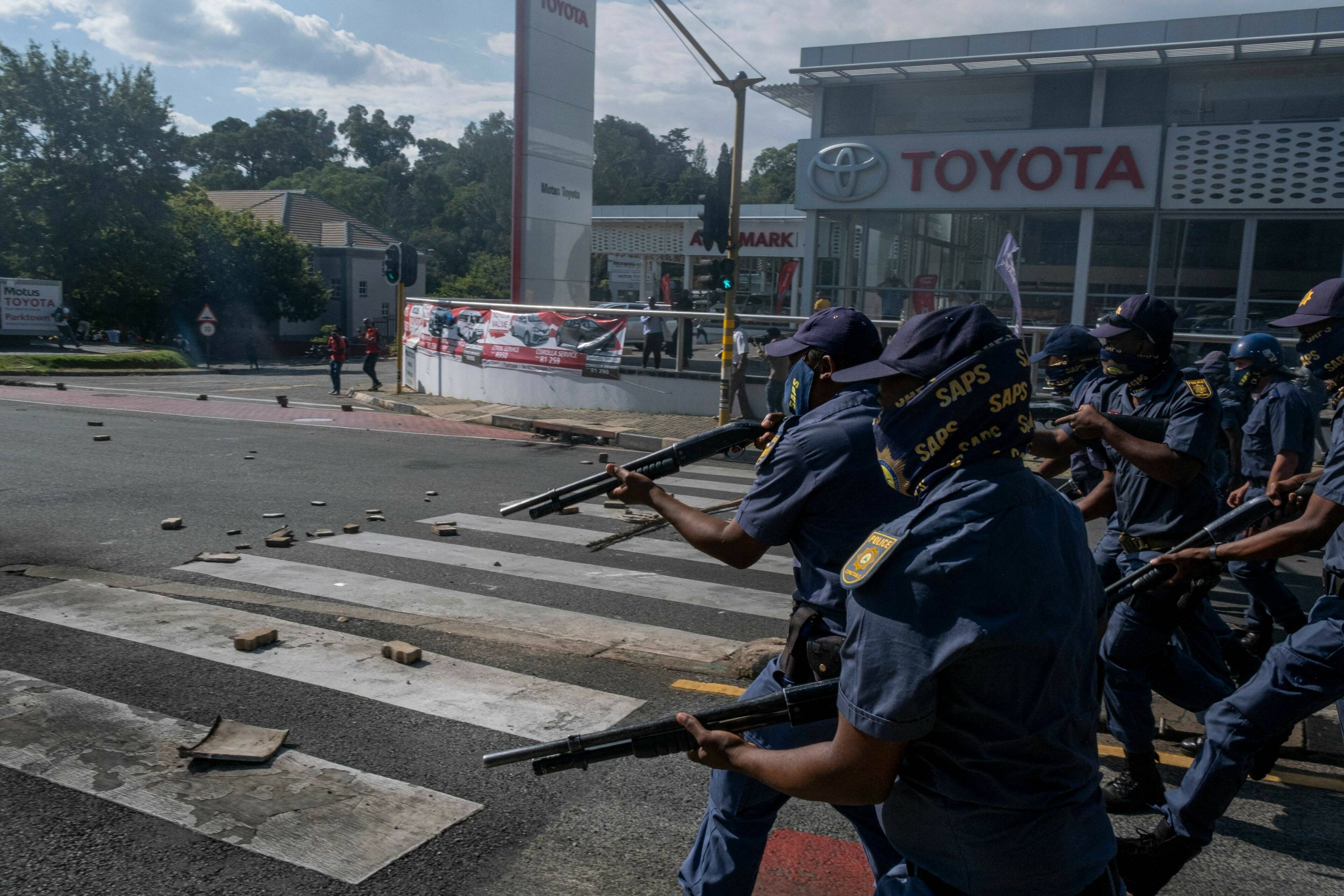Images: Getty Images (Osvaldo Silva/AFP; Emmanuel Croset/AFP))
Scroll down


We forecast further outbreaks of large and potentially-violent protests and unrest in South Africa in 2022.
Kenya faces a challenging year also due to domestic dynamics, but we doubt that political uncertainty will be accompanied by political instability. Campaigning is underway for a contentious presidential election in August 2022. As has long been the case for such elections, prominent political leaders are trying to form alliances along ethnic lines. But William Ruto, the deputy president and one of two frontrunners, appears to be campaigning on a pan-ethnic or post-ethnic platform. We forecast that he will win the election, particularly drawing on young voters.
A win for Ruto would be likely to help mitigate the potential for significant violence or disruption around the vote. But the results of the presidential election are highly likely to be subject to disputes, allegations of rigging and lawsuits. Raila Odinga, a perennial presidential candidate, is running. And at 76 years old, it is likely to be his last attempt at becoming president. He has frequently alleged electoral fraud at past elections, on occasions accurately. Given he has little to lose, we forecast that he will make similar allegations again in 2022, so we forecast a period of uncertainty is likely in the weeks immediately following the vote.
Angola faces a similar challenge with a general election due in 2022. The exact date has not been announced, but we anticipate it will be in August – the month in which the last two such votes have taken place. It is almost certain that the incumbent MPLA party will retain the presidency, and probably a large majority in parliament too. But there have been signs in recent years that its absolute dominance over Angolan politics is weakening.
The Angolan opposition relatively successfully capitalised on the poor state of the economy, police brutality and alleged corruption in the past year, attracting several thousand people to demonstrations in Luanda. These are likely to continue into 2022, with election-related issues such as the voter register likely to be key triggers.
The UNITA opposition party has steadily grown its vote share in the past three elections, particularly in urban areas, even under intense repression by the state. And it has united with several other opposition parties to form a new coalition ahead of this vote. Despite this, we still forecast that the opposition will fall well short of challenging the MPLA hold on government. And although this will probably prompt protests around the polls, we forecast that these would be brief and that a swift return to the relatively stable political and security environment would follow soon after.◼

Only five of the 54 countries in Africa, or 9.3%, are projected to meet a goal of fully vaccinating at least 40% of their citizens by the end of 2021, according to the WHO.




We forecast further outbreaks of large and potentially-violent protests and unrest in South Africa in 2022.
Only five of the 54 countries in Africa, or 9.3%, are projected to meet a goal of fully vaccinating at least 40% of their citizens by the end of 2021, according to the WHO.
Kenya faces a challenging year also due to domestic dynamics, but we doubt that political uncertainty will be accompanied by political instability. Campaigning is underway for a contentious presidential election in August 2022. As has long been the case for such elections, prominent political leaders are trying to form alliances along ethnic lines. But William Ruto, the deputy president and one of two frontrunners, appears to be campaigning on a pan-ethnic or post-ethnic platform. We forecast that he will win the election, particularly drawing on young voters.
A win for Ruto would be likely to help mitigate the potential for significant violence or disruption around the vote. But the results of the presidential election are highly likely to be subject to disputes, allegations of rigging and lawsuits. Raila Odinga, a perennial presidential candidate, is running. And at 76 years old, it is likely to be his last attempt at becoming president. He has frequently alleged electoral fraud at past elections, on occasions accurately. Given he has little to lose, we forecast that he will make similar allegations again in 2022, so we forecast a period of uncertainty is likely in the weeks immediately following the vote.
Angola faces a similar challenge with a general election due in 2022. The exact date has not been announced, but we anticipate it will be in August – the month in which the last two such votes have taken place. It is almost certain that the incumbent MPLA party will retain the presidency, and probably a large majority in parliament too. But there have been signs in recent years that its absolute dominance over Angolan politics is weakening.
The Angolan opposition relatively successfully capitalised on the poor state of the economy, police brutality and alleged corruption in the past year, attracting several thousand people to demonstrations in Luanda. These are likely to continue into 2022, with election-related issues such as the voter register likely to be key triggers.
The UNITA opposition party has steadily grown its vote share in the past three elections, particularly in urban areas, even under intense repression by the state. And it has united with several other opposition parties to form a new coalition ahead of this vote. Despite this, we still forecast that the opposition will fall well short of challenging the MPLA hold on government. And although this will probably prompt protests around the polls, we forecast that these would be brief and that a swift return to the relatively stable political and security environment would follow soon after.◼
